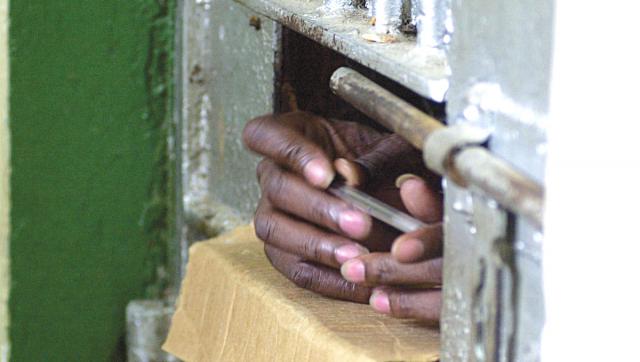Most everyone driving in downtown Nassau on weekdays has experienced the ear piercing sirens of the prisoner bus, flanked by police cars, as they transport prisoners to the court complex on Bank Lane.
This is the standard method used to bring prisoners from Her Majesty’s Prison at Fox Hill to their scheduled court appearances.
The prisoners have to appear before a judge to satisfy the requirements of habeas corpus, which is Latin for “you may have the body” (subject to examination). The name is the opening sentence of a writ originated in medieval times which requires that a person detained by the authorities be brought before a court of law so that the legality of the detention may be examined.
One might assume this to be a quaint custom that has no practicality in today’s world but that isn’t true, at least not in The Bahamas.
Fox Hill prison is a sewer-like maze and it is quite possible that a prisoner could slip between the cracks and be forgotten. Habeas corpus was created to ensure that doesn’t happen.
But it didn’t work in the case of Atain Takitota, a Japanese man who was imprisoned in Fox Hill for over eight years… but never charged.
Mr Takitota, who did not speak English, had come to The Bahamas on vacation in 1992. He lost over $7,000 gambling in the casinos before he realized that his luggage and passport had been stolen.
Police arrested him on a vagrancy charge, put him into Fox Hill prison but never charged him with a crime. Instead, he was locked up and forgotten about.
When it as discovered that he had been held illegally, the Bahamas government released him but didn’t even offer the man so much as an apology, until his lawyer Damien Gomez sued the government on his behalf.
He was awarded $775,000 in damages for the loss of eight years and two months of his life. The government initially refused to pay him despite a court order to do so. It is not clear if payment was ever made.
To avoid situations like what happened to Mr Takitota, habeas corpus demands that every prisoner on remand is brought before the courts once a week to have their remand extended until they can be tried in court. To make that process easier, and to avoid having some 600 prisoners per week transported from the prison to the courts at Bank Lane, the Bahamas government had a system in place which only required that warrants for each prisoner were brought to court.
But the situation got messy about a month ago when Magistrate Carolita Bethell decided that warrants would no longer suffice. In the words of the old writ, she wanted the “bodies” brought to court.
So now, we have around 600 prisoners – some of whom are hardened criminals on remand for murder, armed robbery and rape – bussed from Fox Hill to Bank Lane every week. That’s over 100 prisoners per day, being transported on buses that were not necessarily designed for prisoner transport.
These prisoners and their keepers are quite a problem in an already congested downtown area where tourists are wandering to and fro and Bahamians try to go about their business.
It is also a massive security threat. It is, as the editor of the Tribune newspaper said in a recent editorial on the subject, “a tinderbox just waiting for the right day and the right match to set it off.”
An example of the potential problems in handling this many prisoners in such a haphazard manner occurred last week after a new system had been implemented to expedite the prisoners’ return to the prison. Instead of a convoy at the end of the day, the new system had each bus heading back to Fox Hill when it was full. Only when the last bus arrived at the prison did officials discover that 26 prisoners had been left behind. The forgotten prisoners had to sleep the night at central police station, which clearly doesn’t have adequate accommodations for such an unruly crowd.
The Tribune editor suggested that video conferencing technology be employed so the prisoners could remain at Fox Hill and the judge could view them via remote camera.
But a good judge may think that incompatible with the writ of habeas corpus.
A better solution would be to build a court complex at the prison where felons and dangerous prisoners could be handled on premises, or at least nearer to the prison.
Bahamian lawyers balk at such an idea because it would be inconvenient for them to have to drive out East for court appearances.
So, instead, the rest of society is inconvenienced, costs are inflated and the danger increases as each load of prisoners is transported daily to Bank Lane.
Prisoners have rights and as a society we have an obligation to ensure those rights are upheld. But surely there must be a way to enforce the prisoner’s rights while not jeopardising other law-abiding members of society or, God forbid, threatening our tourism industry. Just think of the problems if a bus load of those hard-core prisoners got the upper hand and went wild in downtown Nassau.
What do you think is the solution to this problem? We’d love to hear your feedback. Please comment below.



